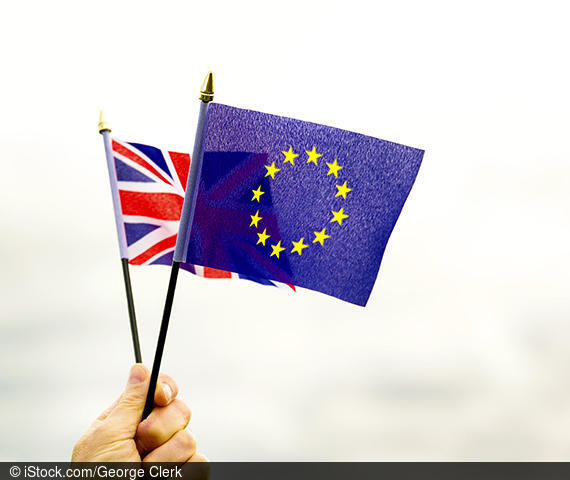An “Energy Brexit” Would Hurt the UK More Than the EU
ResearchAbout a year ago, the majority of UK voters decided the UK should leave the European Union. Yet the details of Brexit still have to be worked out. The UK parliamentary election held in June this year has increased uncertainty in this matter. The EU internal energy market is a showcase for how Brexit may threaten market integration between the UK and the continental EU. When asked about the effects of the UK leaving the EU internal energy market, the vast majority of experts in France and Germany thought that an “Energy Brexit” would hurt the UK more than it would the EU. This is one of the key findings of the Energy Market Barometers conducted among experts from academia and industry by the Mannheim-based Centre for European Economic Research (ZEW) and the Grenoble École de Management (GEM).
More than two thirds of the French experts thought that an “Energy Brexit” would lead to a partial divestment of French energy companies in the UK. In comparison, more than half of the experts in Germany believed German energy companies to do the same. An “Energy Brexit”, in particular, would have virtually no effect on electricity and gas prices or on security supply in electricity and gas in France and Germany. Finally, a large majority of experts in either country expected Brexit to have no effect on EU climate targets.
"A hard Brexit will not have a favourable outcome for the UK"
“The integration of electricity and gas markets in Europe has substantial benefits in terms of efficiency and security of supply and thus for the success of the energy transition. Without doubt, this is a prime example of how the integration of European markets can improve welfare. Concerning the energy sector, a hard Brexit will not have a favourable outcome for the UK,” says Dr. Nikolas Wölfing, researcher at ZEW’s Department of “Environmental and Resource Economics, Environmental Management”.
According to Professor Joachim Schleich, who coordinates the GEM Energy Market Barometer, “The Brexit decision has already undermined the confidence of foreign investors. However, since the energy sector primarily depends on national regulation, the effects of Brexit on the energy sector should be comparatively small.”
ZEW and GEM Energy Market Barometers
The GEM and the ZEW Energy Market Barometers are biannual surveys conducted among experts from academia and industry. Participants are surveyed with regard to their expectations concerning short-term (six-month horizon) and medium-term (five-year horizon) developments in national and international energy markets. The results from the latest ZEW Energy Market Barometer for Germany are based on 151 responses in May 2017. The report of the latest GEM Energy Market Barometer is based on 83 responses in May 2017.
For more information please contact
Dr. Nikolas Wölfing, Phone +49(0)621/1235-217, E-mail nikolas.woelfing@zew.de
